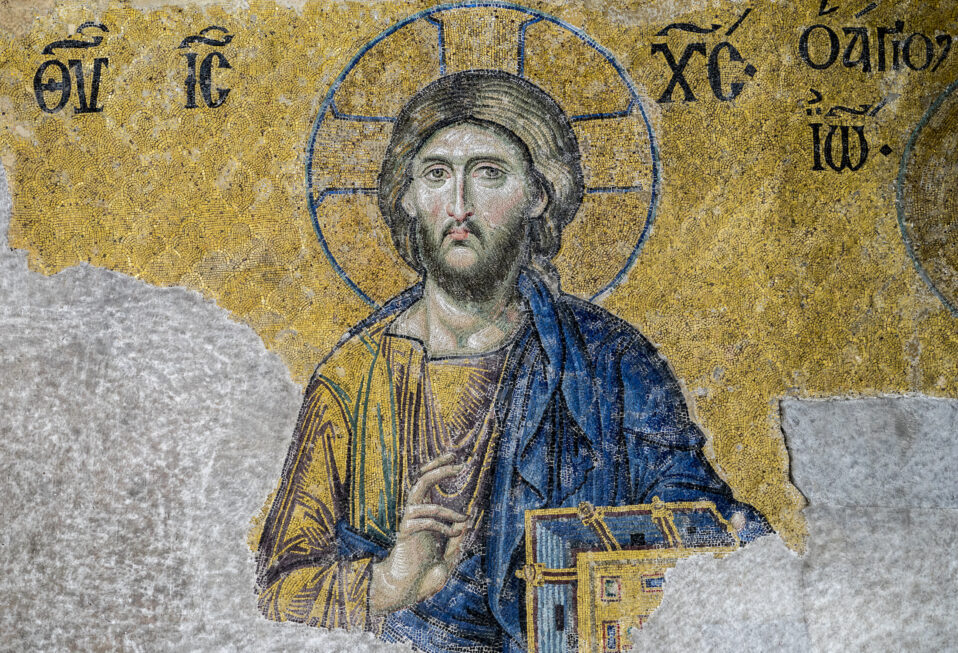No one single cause led Christianity to drift from its Jewish roots. No one single event brought it about. A combination of factors and forces caused Christianity’s deviation from Judaism, some came from within the Christian communities and others came from outside. But by the time of the Byzantine Empire, most Christians did not know Jesus and the Apostles were Jewish.
The status of non-Jews within Jewish communities fostered a sense of not belonging. While Jesus’ movement accepted non-Jews as equal children of God, the non-Jewish followers of Jesus found themselves outside of the Jewish community and without a place in their non-Jewish cities and families, who adhered to idol worship.
Jesus’ movement prohibited non-Jews from worshipping idols; thus, non-Jewish followers of Jesus found themselves between two worlds, with no place in either. This led, in part, to the establishment of Christianity as a “third race” separate from Judaism and idolatrous non-Jews among the Church Fathers at the end of the first century and beginning of the second. Christianity needed to separate itself from Judaism, which it did.
This did not take place within a vacuum, however. The anti-Jewish sentiment and legislation within the Roman Empire, because of the Jewish revolts (A.D. 66-136), encouraged and accelerated the movement of the non-Jewish followers of Jesus away from Judaism. So too, the Jewish community, as it sought to reorganize itself after the destruction of Jerusalem and its Temple, set firmer boundaries between Jews and non-Jews, pushing back on the different, non-Pharisaic forms of Judaism.
This escalated the Christian drift from its Jewish origins. Rabbinic Judaism and Christianity are sisters, the mother of both being ancient Judaism. As in the case with most sibling rivalry, tension forms.
Christian theologians in the second century A.D. separated the God of the Jews from the God of Jesus. The writings of Valentinus (130s), Marcion (140s), and Justin (150s) present the God of Jesus as not the God of Israel. These Christian thinkers came out of Middle-Platonism, in which the high god must be transcendent, perfect, immaterial, and changeless. Such a god would not create matter.
Another, lower god, a demiurge, organized the material universe. He could act in the world, unlike the high god. The imperfections, ills, and evils of the physical universe happened because of this lower god. The God of the Bible, a being of passions and changing of mind, a God who suffers, how can He be the high god, unchanging, incorruptible, and immaterial?
These Christian thinkers concluded, God the Father was an eternal, transcendent deity, without body or passions, and prior to the revelation of Christ was utterly unknown. The God of the Jews was the demiurge, the lower god. He gave the Jews their laws, like circumcision, Sabbath, and dietary restrictions. They differed on the relationship of this lower god to Christ.
Valentinus argued Christ fulfilled the good laws of this lower god and destroyed those laws Valentinus considered baseless. Marcion viewed the demiurge as hostile to the Gospel of Christ. Justin identified the lower god as “another god,” distinct from the high god. Justin identified the lower god, the God of the Jews, as the pre-incarnate Christ. The God of the Jews was the God of the Christians, the pre-incarnate Christ, the Son. The God of Israel was dead.
These forces—social and theological—provided the foundation for Christianity’s deviation from its Jewish origins. This is a tragic reality still felt in many Christian communities today.
Marc Turnage is President/CEO of Biblical Expeditions. He is an authority on ancient Judaism and Christian origins. He has published widely for both academic and popular audiences. His most recent book, Windows into the Bible, was named by Outreach Magazine as one of its top 100 Christian living resources. Marc is a widely sought-after speaker and a gifted teacher. He has been guiding groups to the lands of the Bible—Israel, Jordan, Egypt, Turkey, Greece, and Italy—for over twenty years.
Website: WITBUniversity.com
Facebook: @witbuniversity
Podcast: Windows into the Bible Podcast




Post a comment